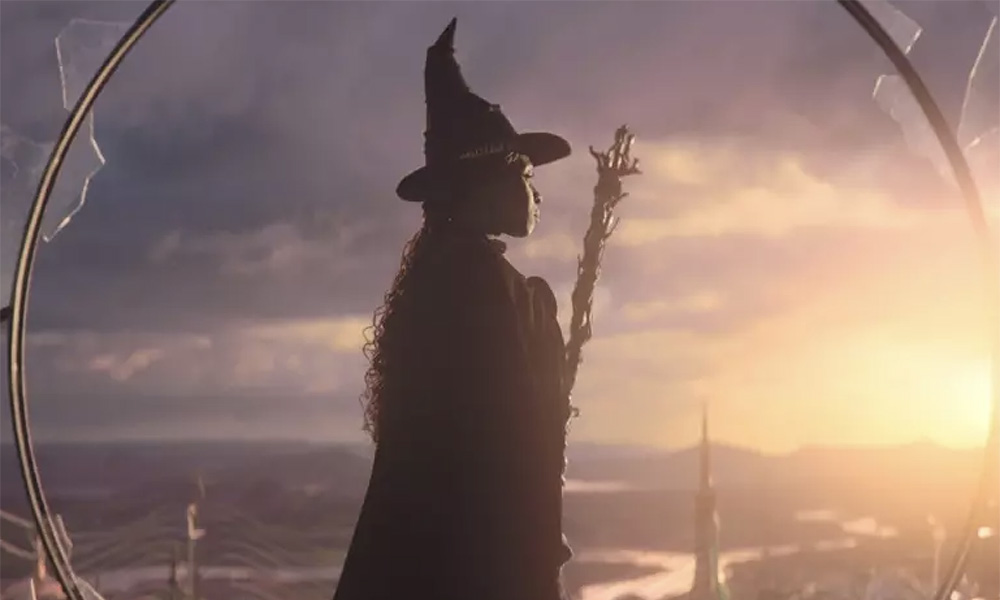The Untold Story of Wicked: The Musical That Almost Wasn’t
The journey of Wicked from Gregory Maguire’s 1995 novel to Broadway and now to the big screen was anything but straightforward. In its early stages, the adaptation nearly took a drastically different path—a fantasy adventure film without songs, starring Hollywood icons like Demi Moore or Whoopi Goldberg as the misunderstood Elphaba. However, through twists of fate and creative reimaginings, Wicked found its voice as a groundbreaking musical that reshaped the entertainment landscape.
A Different Vision for Oz
In the late 1990s, Hollywood’s interest in Wicked sparked a bidding war. Gregory Maguire’s novel, which offered a darker, more complex take on The Wizard of Oz through the perspective of the Wicked Witch of the West, captured the imaginations of several major players. Demi Moore’s production company ultimately secured the rights, envisioning Moore in the lead role as Elphaba. Other stars, including Whoopi Goldberg and Claire Danes, were also drawn to the project.
At the time, movie musicals were out of vogue, and the initial plan was to adapt Wicked as a straightforward fantasy drama. Screenwriters struggled to distill the dense, introspective novel into a filmable script. The book’s themes of political intrigue, personal isolation, and moral ambiguity posed unique challenges for traditional cinematic storytelling. Attempts to translate Elphaba’s internal struggles without relying on heavy narration or dialogue proved particularly difficult.
Adding to the complexity was the cost of creating a visually immersive Oz. Budget projections for a film of this scale were high, and without a guaranteed audience, the project stalled. Though several screenplays were drafted, none managed to capture the essence of Maguire’s story while meeting the practical demands of production.
The Turn to Music
As work on the film adaptation floundered, the idea of adding songs to the narrative emerged. This approach gained traction when composer Stephen Schwartz became interested in the project. His background in Broadway and Disney animated musicals offered a fresh perspective on how to adapt Wicked. Instead of trying to condense the novel’s sprawling narrative into a traditional film, Schwartz envisioned a musical that could use song to delve into the characters’ emotions and relationships.
This shift in thinking transformed Wicked. By reimagining the story as a stage musical, the focus shifted to the relationship between Elphaba and Glinda, highlighting themes of friendship, ambition, and the nature of good and evil. This approach allowed the story to become more intimate and relatable while retaining the novel’s larger political and moral questions.
The Road to Broadway
The decision to develop Wicked as a musical was not immediate. It took years of work, with Schwartz partnering with writer Winnie Holzman to refine the story and create a compelling theatrical experience. The process involved numerous revisions, as the team worked to balance the novel’s depth with the constraints of live theater. Songs became a vital storytelling tool, enabling characters to express inner thoughts and emotions in a way that had eluded the earlier film scripts.
In 2003, Wicked debuted on Broadway and became an instant hit. Audiences were captivated by its reinterpretation of The Wizard of Oz, its complex characters, and its iconic songs. The show’s success revitalized interest in musicals, paving the way for future Broadway-to-film adaptations.
From Stage to Screen
Despite its success on stage, the leap to film took nearly two decades. Concerns about timing and maintaining the stage show’s momentum delayed the project. By the time production began, the musical had become a global phenomenon, seen by millions and earning billions at the box office.
The eventual decision to adapt Wicked for film involved splitting the story into two parts to fully capture its depth. The cinematic version, directed by Jon M. Chu, features an all-star cast and a reported budget of $320 million, reflecting the scale and ambition of the project. Its release has already made it the highest-grossing film adaptation of a Broadway musical, cementing Wicked’s legacy as a cultural powerhouse.
A Legacy Redefined
The journey of Wicked demonstrates how creative vision and persistence can shape the course of a project. What began as a planned fantasy drama evolved into a defining musical of the 21st century. By embracing music and reimagining its storytelling approach, Wicked found a way to resonate with audiences on stage and screen alike.
The challenges and near-misses along the way only underscore the uniqueness of what Wicked became—a story of friendship, identity, and perspective that continues to enchant audiences around the world. The adaptation that almost wasn’t is now an enduring symbol of the power of reinvention in storytelling.



